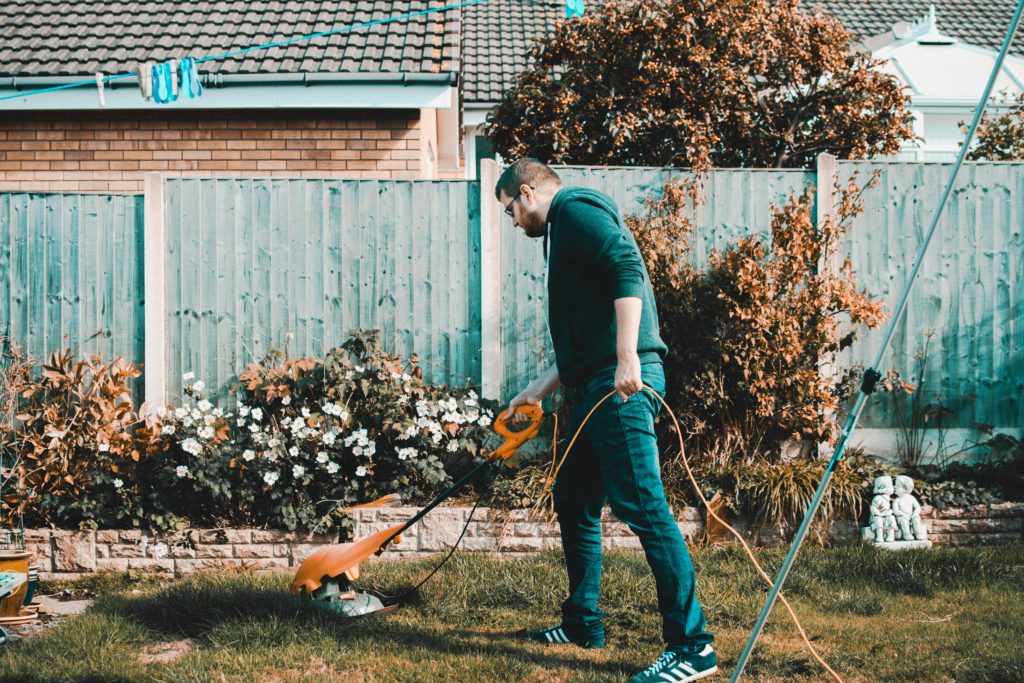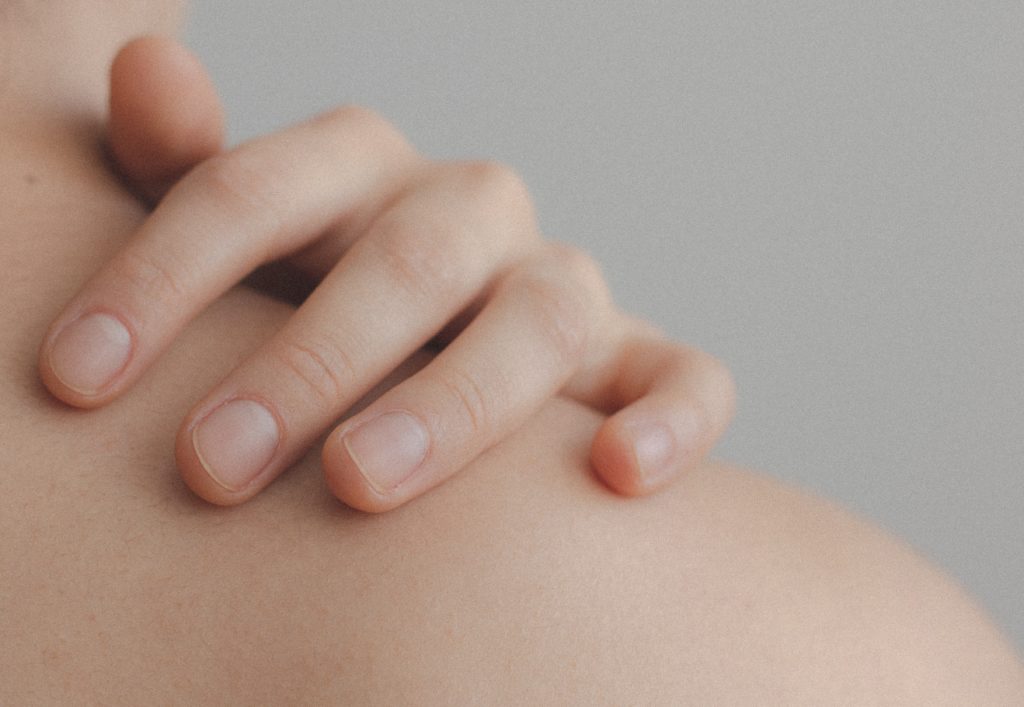Here’s how to repel mosquitoes while working in the yard
Working outside? Yard work is hard enough without being bitten by flying nuisances. Here’s how to repel mosquitoes.

Gardening is fun. Mosquito bites are not.
If you think mosquitoes are particularly drawn to you when you are working hard in the garden or in the yard, you are not delusional. All that sweating (and breathing) is especially attractive to the biting bugs.
“Mosquitoes are attracted to heat and carbon dioxide,” said Jim Dill, pest management specialist at the University of Maine Cooperative Extension. “If you’re outside working doing something fairly strenuous, breathing fairly hard, that means you can attract more mosquitoes that if you’re sitting on your porch and sipping a cool drink.”
Mosquitoes also tend to think certain people are tastier than others.
“Each person has got their own physiology,” said Joseph Conlon, technical advisor at the American Mosquito Control Association Conlon explained that how we digest food, the smells that we give off during digestive processes, the oils our skin exudes and even the bacteria on our skin emit chemicals that are either attractive or repellent to mosquitoes.
Physiology is not fate when it comes to attracting mosquitoes, though.
“Other chemicals that you use — a hairspray, shampoo or deodorant — can attract mosquitoes,” Dill said.
In the same vein, your personal choices — like the repellant you choose to apply, the clothes you choose to wear and the way you tend to your yard — make a difference when it comes to repelling mosquitoes.
“We’re the final and probably best line of defense against mosquitoes,” Conlon said. “Mosquito control practices have their place in it but personal protective control measures are certainly important.”
When, where and why to watch out for mosquitoes
Besides being a nuisance, mosquitoes carry debilitating and sometimes fatal diseases, even throughout the United States. West Nile virus and the Eastern equine encephalitis virus are the most common mosquito-borne diseases that are prevalent in the United States.
“Every state in the United States has a vector-borne disease related to mosquitoes,” Conlon said, and not just the ones that make national news. Conlon said that during the zika craze that captured the media’s attention in 2016, over 4,000 Americans were diagnosed with the West Nile Virus with hardly any fanfare.
“It’s funny how people react to vector-borne diseases,” Conlon said.
Both West Nile Virus and Eastern equine encephalitis have been found in Maine.
“The most recent case of West Nile virus in a human was three or four years ago [in Maine],” Dill said. “Usually what we do is we find it in animals. That kind of gives us a warning.”
The mosquito issue is not as prevalent in Maine as it is in other parts of the United States, though, especially when compared to swampy southeastern states like Florida.
“We probably have fewer actual diversity in species [of mosquitoes] than some of the other states,” Dill said. “Some of the other states have more obnoxious mosquitoes in terms of biters or disease. We’re fairly fortunate here in Maine that we don’t have a lot of issues related to disease and mosquitoes.”
Mosquito populations tend to congregate around standing bodies of water. The population density can vary from year to year depending on the amount of rainfall in the area.
“It depends on the year,” Dill said. “Mosquitoes for the most part are very standing water dependent. If you have a drought season, you may have less mosquitoes than if you have a wet season. It’s a very localized situation. One year you can get carried away by them, and the next year you might not have any..”
“Climate change will have an impact on that — slow, but demonstrable,” Conlon said. “To the extent that we have water left as residue from storms and rainfall, you’re going to have a larger mosquito population.”
Regardless of the year, mosquito populations tend to peak in the spring and fall.
“The peak is early [in the spring], but most of the any type of diseases that show up don’t show up until late August or September,” Dill said. “Summer can be dry, but if it’s a fairly wet summer you have them all year round.”
Which mosquito repellents work best?
When it comes to protecting yourself from mosquitoes, Conlon and Dill agree that topical repellents are your best bet.
Dill explained that the most common mosquito repellents are made with diethyltoluamide, otherwise known as DEET, or picaridin.
“DEET is the gold standard by which all other repellents are judged,” Conlon said. “DEET used to have serious cosmetic issues, like a greasy feel and it stunk really bad, but manufacturers have [fixed that].”
Conlon recommended a 25 to 30 percent formulation of DEET. A 100 percent formulation, he said, will give you longer, but not better, protection.
Picaridin, a synthetic derivative of the pepper plant, is the most broadly selling mosquito repellent abroad.
“I suggest a formulation of 15 percent or above,” Conlon said. “It will not only repel mosquitoes but ticks as well.”
Some consumers may be wary about using synthetic chemicals on their skin or for the sake of the environment, but Condon and Dill agreed that these fears are overblown. The Environmental Protection Agency (EPA) has determined that DEET and picaridin do not pose a significant threat to human or environmental health.
If you are still concerned about synthetic repellent, Conlon said, “do not buy or utilize a repellant unless it has an EPA registration number on it.”
There are some natural mosquito repellents. Conlon said that catnip is a “bonafide repellent to mosquitoes.”
“However, I don’t know if they’ve engineered the cat attractant out of it or not,” he laughed.
Lemongrass, citronella and oil of lemon and eucalyptus also works, but it needs to be applied much more often than synthetic repellents — every 30 minutes as opposed to every two hours for DEET or picaridin, Dill said.
“They are easily removed through sweating,” Dill said. “They work, but you have to keep applying it.”
Conlon said to try 40 percent formulation of lemon and eucalyptus, and also warned that you should not apply it to children less than 3 years of age.
“Even though it’s a natural product, it’s more toxic than the synthetics,” he explained.
For that reason, Conlon and Dill also warned to be wary with other natural repellent methods.
“[Essential oils] have a very inconsistent track record in terms of repellency,” Conlon said. “People are under the delusion that they’re all harmless. They’re not.”
For example, Conlon said that oil of cloves at a concentration of 15 to 20 percent will repel mosquitoes — but it will also burn a hole right through your skin.
“People have to be very wary of the natural repellents that they use,” he said.
Conlon and Dill also said that many old wives’ natural remedies to repel mosquitoes, like garlic, apple cider vinegar and vitamin B12 supplements, are basically bunk.
“If you use pure garlic oil and rub it on your skin, it will give you about 20 minutes of protection,” Conlon said. “Vitamin B12 does not work either. If apple cider vinegar were a really good repellant, the people manufacturing it would be advertising it.”
“It you ate enough garlic to repel mosquitoes you’re going to be repelling everyone else in the area too,” Dill laughed.
Rosemary and lavender, likewise, have very weak repellency properties.
“If you’re going to rely on that to keep mosquitoes off you, I’m afraid you’re going to be disappointed,” Conlon said.
Others that have been debunked, Conlon said, include absinthe, basil, billygoat weed, cedar, cypress, blue eucalyptus, Chinese ginger and geranium.
“They have been tested and found wanting in that regard, and there are a number of them that have toxicity issues,” Conlon said. “People think that just because they’re natural means they’re nontoxic. You really have to be very very careful in these things.”
As for laundry sheets as mosquito repellent?
“Absolute nonsense,” Conlon laughed.

How else can you prevent mosquitoes from biting you?
Timing matters when it comes to avoiding mosquitoes.
“For the most part, mosquitoes are most active in the morning and the evening,” Dill said. “They’re what we call a crepuscular insect. If you’re going to be outside and doing any activities, those are the times to avoid.”
You can also dress for the occasion. Cover up as much as possible. Mosquitoes are attracted to dark colors, so keep your clothing long and light. Conlon said to wear loose layers to prevent mosquitoes from being able to bite through taut fabric. Dill recommended using a tightly-woven fabric as well.
Dill said that there are full suits made out of mosquito netting material with long pants, a long sleeve shirt and a head net. You can also purchase clothes that are impregnated with permethrin, a synthetic product derived from chrysanthemum that is used to repel mosquitoes. Conlon said they worked like a charm during the 25 years he spent in the Navy.
Dill said that he has not seen clip-on ultrasonic mosquito repellents that work very well, but Conlon said if you are sitting on your porch taking a break from your hard yard work, you can also use a simple fan to help keep mosquitoes at bay.
“Mosquitoes are poor flyers,” Conlon said. “They can’t navigate a stiff breeze.”
You can also purchase a mosquito trap, which contains a chemical attractant or UV light to draw mosquitoes in a suck them up with a vacuum where they will dehydrate and die, though such traps tend to cost a couple hundred dollars and run on propane.
“Some people say they work really well,” Dill said. “Some people are willing to go that way. I see at as a last resort.”
How can you avoid attracting mosquitoes to your yard?
Mosquitoes breed in standing water, so make sure all stagnant pools, no matter the size, have been drained from your property.
“If you’re a gardener and you use five-gallon plastic buckets, always empty those,” Dill said. “Even bird baths, make sure you empty those at least once a week.”
Make sure your neighbors do the same.
“You have to try to convince your neighbors if you have a mosquito problem to do the same thing,” Dill said. “If you’re the only one that’s doing it it doesn’t help a lot. There are usually plenty of mosquitoes around, and they fly quite a distance looking for blood meal.”
Conlon and Dill said that you cannot really plant anything that will keep mosquitoes at bay. Lawn maintenance, however, matters.
“Trim [your bushes] back,” Conlon said. “Mosquitoes will utilize the bushes and high grasses and weeds as hiding places during the day. They don’t like to be out in a direct sunlight.”
Even if it takes some experimentation, it is essential to find the method to repel mosquitoes that works best for you if you are going to be spending considerable amounts of time outside.
“Mosquitoes have been around for 170 million years and not because they’re stupid,” Conlon said. “They’re adaptable, and they’re far and away the most dangerous creature on Earth. Take repelling them seriously.”
